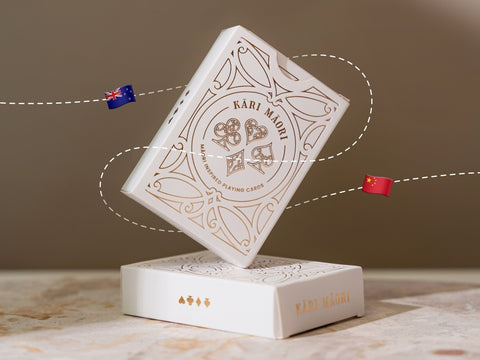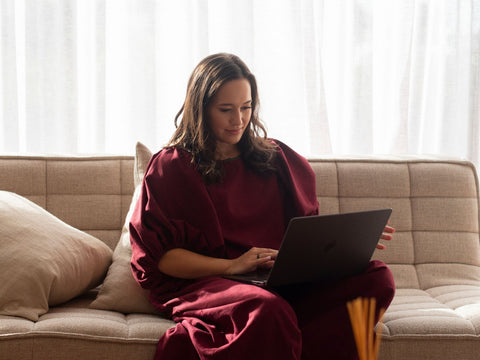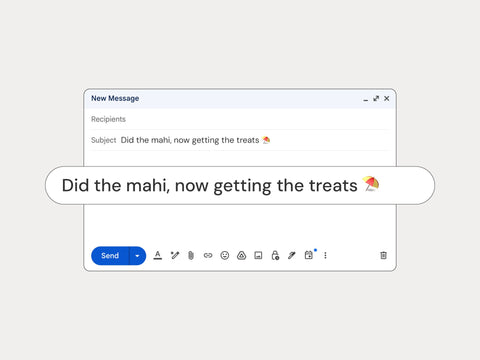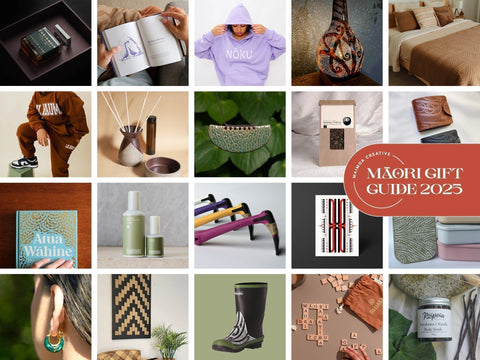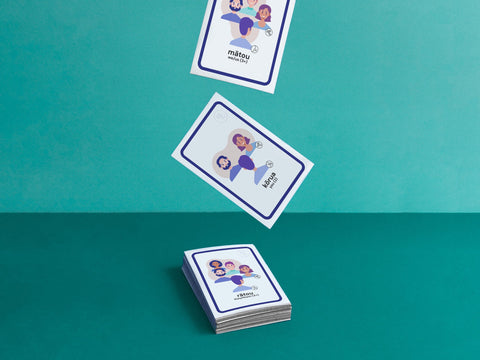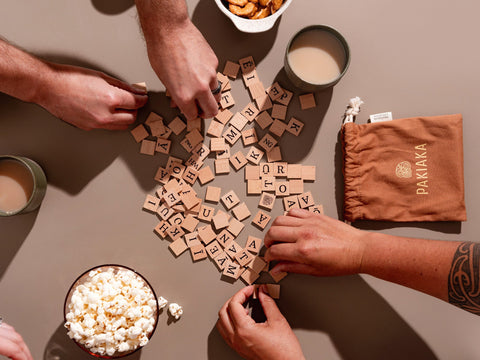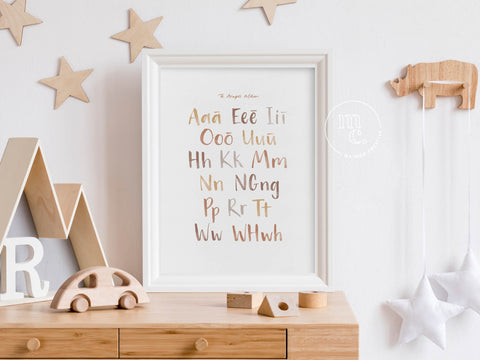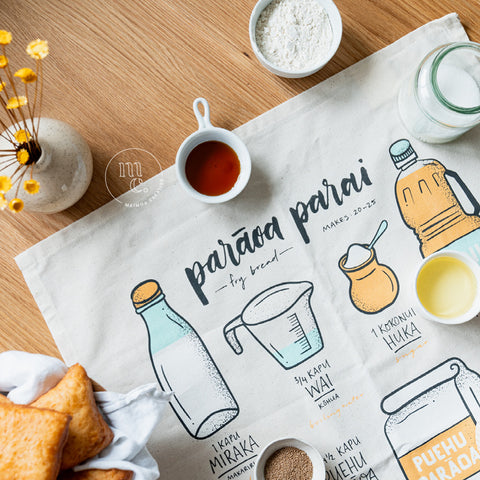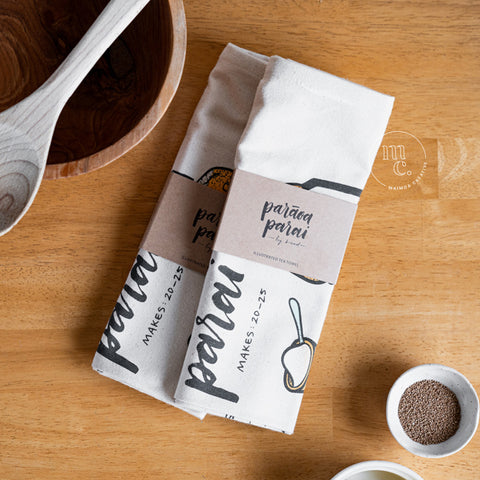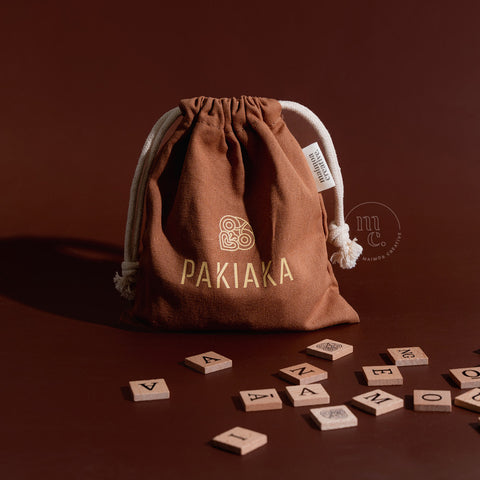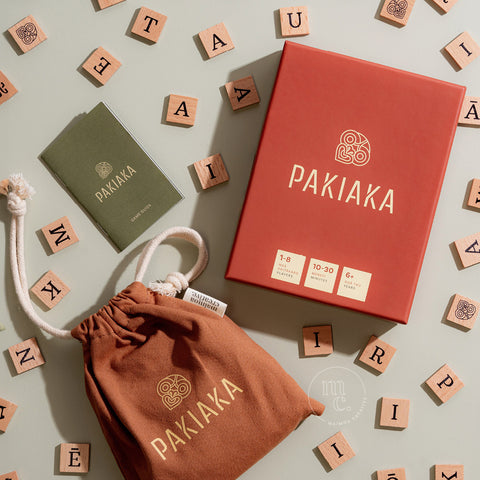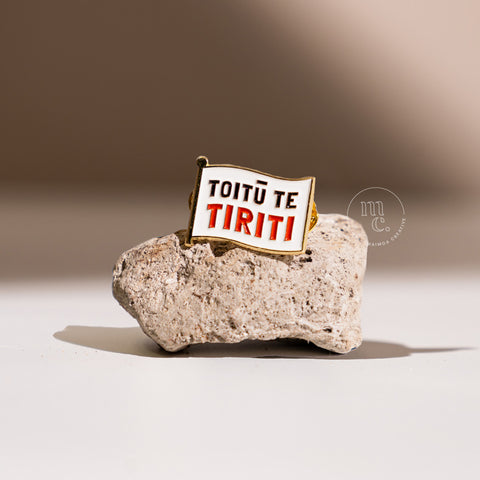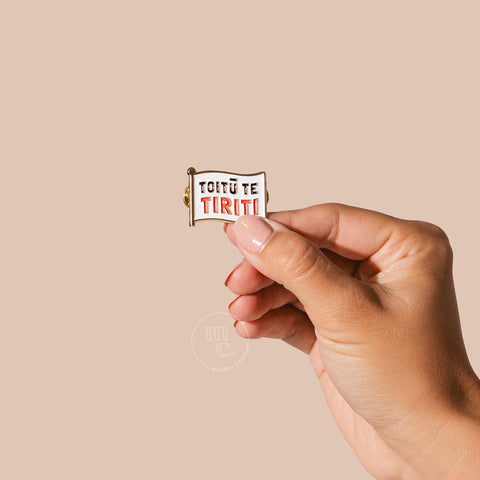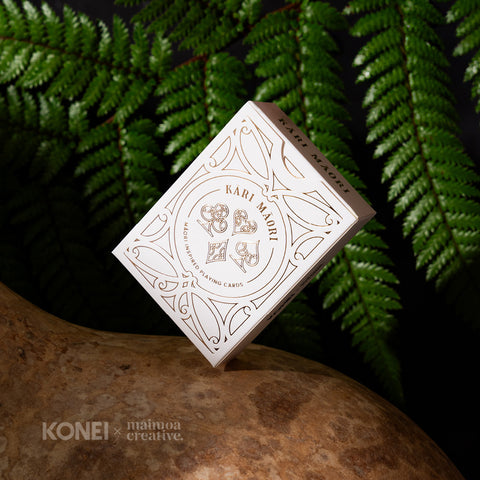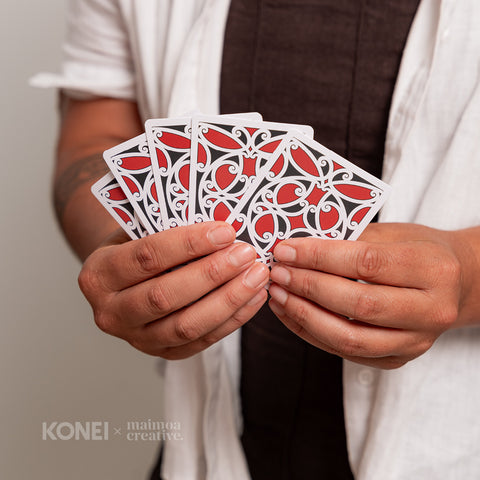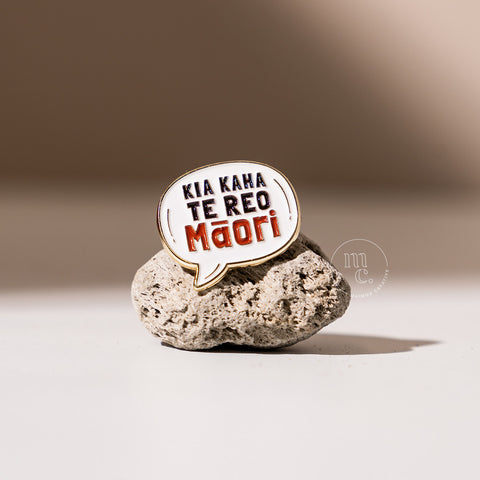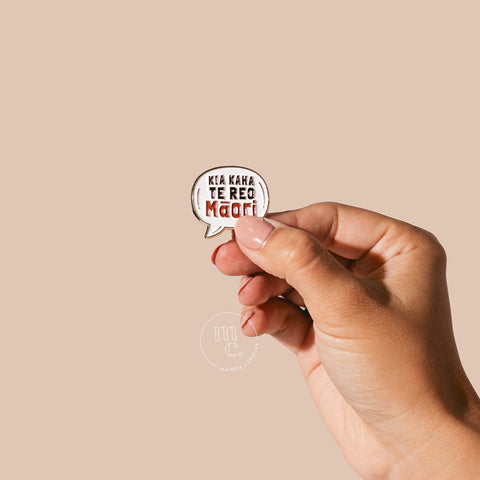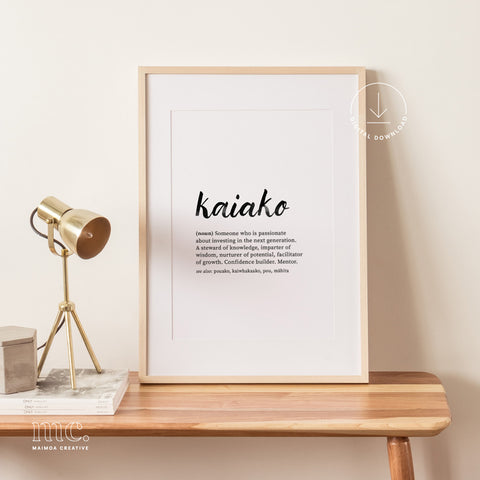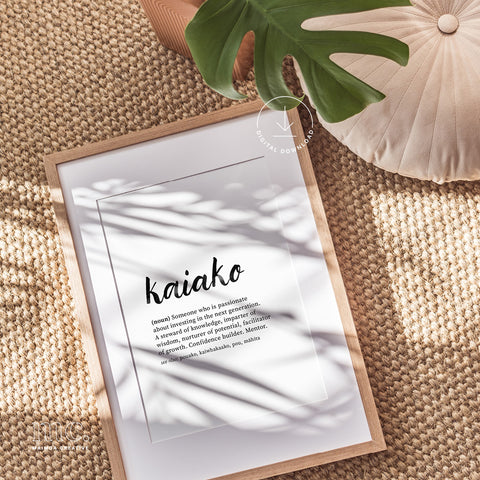What does it really mean to be Māori made?
This month, Konei x Maimoa Creative released a three-part video series sharing our journey of moving production of our popular Māori inspired playing cards Kāri Māori offshore — a decision that brought with it a lot of reflection, growth, and honest kōrero.
It raised big pātai: What does it mean to be "Māori made"? Does the mahi have to be done by Māori hands on Māori soil? Or is it enough that the ideas, the artwork, the IP, and the kaupapa are all curated by Māori minds? We don’t have all the answers — but we think the pātai is worth exploring.
The dream was always to have our products made entirely in Aotearoa. It’s something we held tightly from the beginning. We tried, more than once. But as we’ll share honestly below, the reality of manufacturing here wasn’t as straightforward as we hoped.
↓ Edition one of Kāri Māori, 2021

The reality check
Having products manufactured solely in Aotearoa isn't always easy. Or cheap. Or even sustainable. We went through two different suppliers in Aotearoa before we made the call to look offshore. The issues we faced weren’t just about cost — although that played a part — it was also about quality, consistency, and capacity. Faulty stock, limited machinery, and high waste made it clear: the outcomes weren’t matching the intention or expectations.
"It has been a very challenging journey, and had a lot of hiccups and bumps along the way," Aroha shares. "New Zealand is so limited with our resources...and it was just too hard for quality assurance to make sure that we were creating the best product that we could, and the quality that we wanted."
And even when something is “NZ made,” it’s rarely made only with New Zealand materials. Our paper, card, and packaging were all sourced overseas. So what were we really trying to prove?
↓ Edition one of Kāri Māori, 2021

↓ Faulty product from first few editions

The shift to China — masters of their craft
After a lot of thought, hesitation, and wānanga, we moved production to China — and we haven’t looked back.
There’s a stigma around overseas production, and it’s especially strong in kaupapa Māori spaces. There’s a common misconception that all products made in China are “cheap and nasty” — but that’s far from the full picture. Some of the highest-quality, most premium products in the world come from their factories. Ultimately, it comes down to who you choose to partner with, your budget, and the standards you want to uphold.
"100% It's a place of mass manufacturing, which is quite scary for a little pakihi like us, and little place like Aotearoa," Manawa adds.
When the team visited the factory in May 2025, they were blown away. The precision. The pride. The care they take in their craft. Their quality control is next level — and their care towards us as customers was evident. Since we partnered with them, they have done everything to address our pātai, concerns and requests. "We were really well looked after. Their manaakitanga is on point," Manawa shares. "Really beautiful to meet with them... so far we have only emailed them, so it was nice to meet them in person, to go around their factory, see the people that were working, see the quality of the work, and the environment that they have."
This reflection is shared by other pakihi Māori too, with Jonique from Waiapu Road commenting "I love who we work with in China, the manaakitanga was very similar to how we manaaki manuhiri. Had a whole new appreciation for how hard they work and the process that goes into making a single garment."
Our latest editions of Kāri Māori are superior in quality and durability — which is what we believe our customers deserve when they're spending their hard earned pūtea on a premium deck of playing cards.
↓ Being hosted by our factory in Dongguan (东莞), China

↓ New edition of Kāri Māori, made in China 🇨🇳 Photography by Tastefully Studios
The bigger kōrero
We know this kōrero is bigger than just our kāri.
Does moving production offshore make something less Māori? Can a taonga still hold mana if it wasn’t physically made here? How do we hold cultural integrity and business sustainability at the same time? These are questions we think more Māori businesses are grappling with. So we wanted to share our experience — not as a blueprint, but as an encouragement for wānanga.
Let’s be clear: the design, the mahi toi, the reo, the story behind every kāri — that’s still 100% Māori. None of that has changed, and we wanted to protect that taonga right from the beginning. We worked with Kāhui Legal to protect our IP and ensure our partnership was grounded in mutual respect before proceeding with manufacturing. Manawa emphasises our gratitude, sharing that "[they] helped really guide us on this journey, and make sure that what we were doing we were doing with the most integrity that we could do, and we could keep our whakaaro and our toi Māori as protected and well cared for as possible, and also still bring a beautiful product to the world."
↓ Artist Jordy Elise creating the artwork for Kāri Māori

Our commitment to the kaupapa hasn’t changed, but our processes have — and we think our community deserves to know why. We’re not here to tell you what’s right. We just hope this kōrero gives more context, more transparency, and more space for wānanga.
—
Helpful Links for Māori Businesses Manufacturing Overseas
If you’re a Māori business considering overseas production, you don’t have to navigate it alone. Here are some organisations that can tautoko you on your journey:
-
MWDI (Māori Women’s Development Inc) – Business mentoring, funding, and training for wāhine Māori entrepreneurs.
mwdi.co.nz -
Kāhui Legal – Specialists in kaupapa Māori legal advice, including IP protection and commercial agreements.
kahuilegal.co.nz -
Asia New Zealand Foundation – Builds relationships and understanding between Aotearoa and Asia; great for market insights and networking.
asianz.org.nz -
NZTE (New Zealand Trade & Enterprise) – Offers export support, international connections, and manufacturing advice.
nzte.govt.nz

